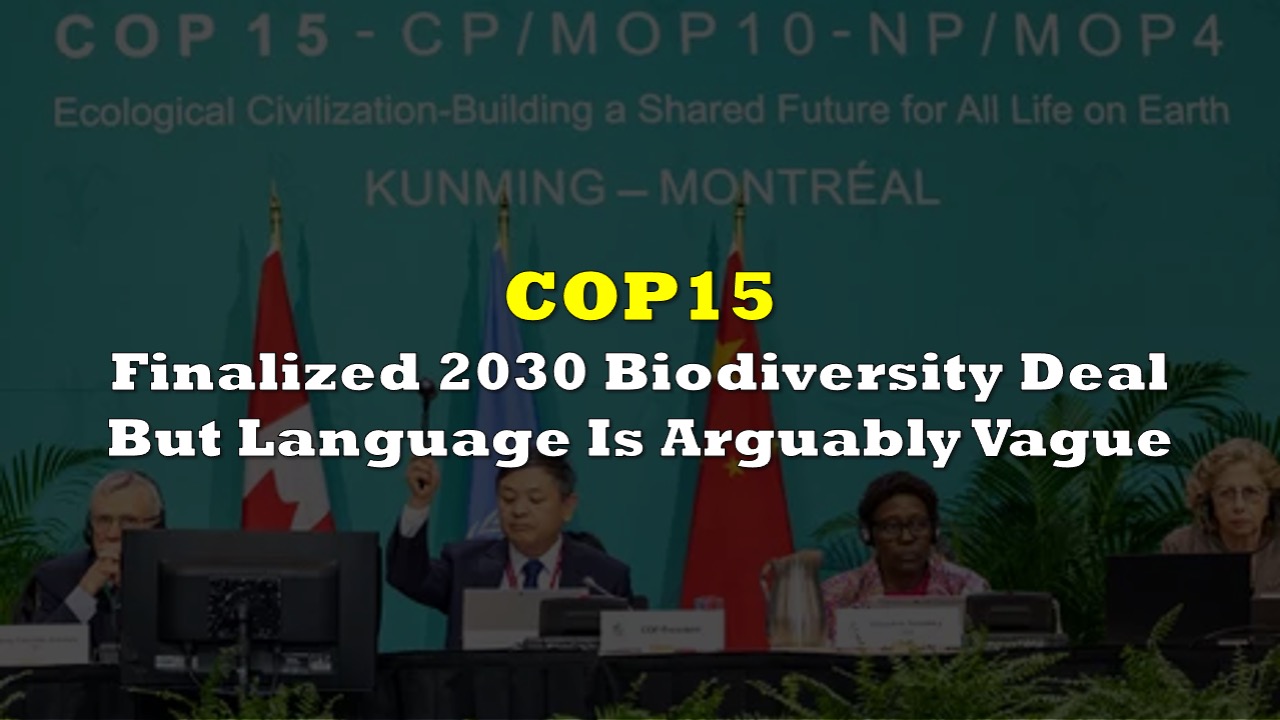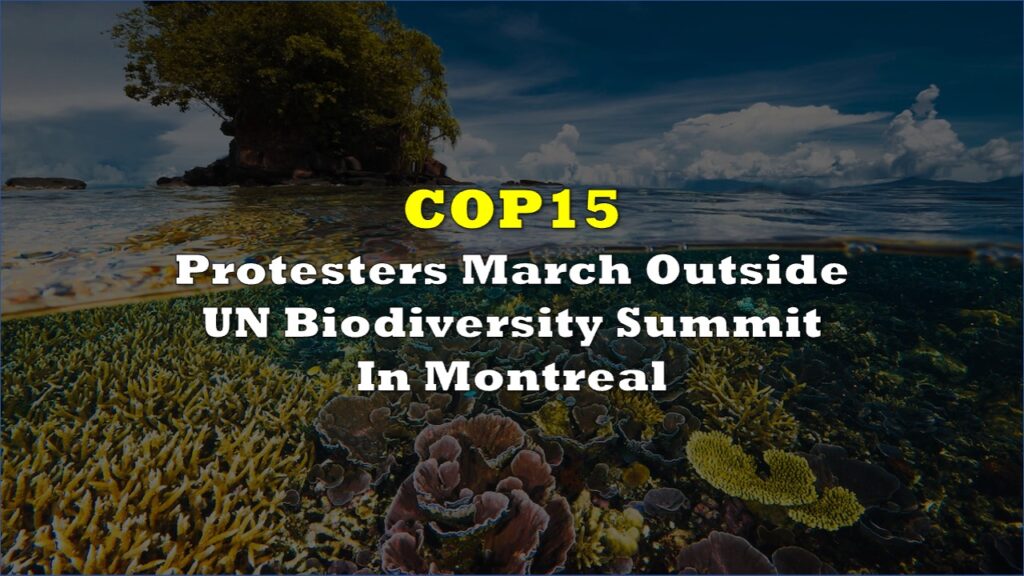Nations have secured an agreement to halt and reverse environmental devastation by 2030 in a landmark deal at the United Nations Biodiversity Conference in Montreal. The participating countries at the conference have agreed to four goals and 23 targets, according to a declaration published early Monday morning.
The UN biodiversity summit, known as COP15, laid out its goals, including safeguarding 30% of the world’s land, water, and marine resources by 2030, as well as mobilizing at least $200 billion in domestic and international biodiversity-related investment from all public and commercial sources by the end of the decade.
Montreal, 3:34 am, governments choose the right side of history and adopt the Global Biodiversity Framework including a new global goal for #nature, the equivalent to 1.5C!!
— Marco Lambertini (@WWF_DG) December 19, 2022
“Halt and reverse nature loss by 2030”
For a #NaturePositive world pic.twitter.com/gBXO3DkpA0
There is also a vow to cut environmentally detrimental subsidies by at least $500 billion by 2030, with rich countries committing to providing at least $20 billion per year by 2025, and $30 billion per year by 2030.
“Many of us wanted more things in the text and more ambition, but we got an ambitious package,” said Steven Guilbeault, Canada’s Minister of Environment and Climate Change. “We have an agreement to halt and reverse biodiversity loss, to work on restoration, to reduce the use of pesticides. This is tremendous progress.”
The Kunming-Montreal Global Biodiversity Framework is named after the official host cities in China and Canada.
The final agreement came after nearly two weeks of deliberations among the 196 countries who are signatories to the UN Convention on Biological Diversity. They were looking for a new agreement to stop human damage of nature and begin rebuilding what had already been destroyed.
One of the most controversial topics has been money, with delegates from 70 African, South American, and Asian countries walking out of negotiations on Wednesday. They came back some hours later.
Developed countries insisted on the 30 by 30 aim, while underdeveloped countries accused wealthier countries of establishing lofty goals without providing adequate funding to support them.
Scientists have warned that people are pushing the Earth past acceptable boundaries, with forests and grasslands disappearing at record rates and oceans under pressure from pollution. This includes an increased danger of diseases such as SARs CoV-2, Ebola, and HIV spreading from wild animals to human populations.
In an ironic fashion, the conference was moved from Beijing and postponed because of continuous COVID threats. China, which was in charge of the meeting, brought down the gavel on the agreement despite a last-minute opposition from the Democratic Republic of the Congo, saying his country couldn’t support the agreement because of concerns about funding.
However, a legal adviser from the UN Secretariat for Biodiversity said that because it was not a formal complaint, the deal could proceed.
The landmark deal was lauded by UN Secretary General Antonio Guterres and European Commission President Ursula von der Leyen.
We are finally starting to forge a peace pact with nature.
— António Guterres (@antonioguterres) December 19, 2022
Delegates at #COP15 have agreed on a new Global Biodiversity Framework.
This is an important step for determined diplomacy and I urge all countries to deliver on their commitments.
I welcome the historic outcome of #COP15.
— Ursula von der Leyen (@vonderleyen) December 19, 2022
The world has agreed on unprecedented and measurable nature protection and restoration goals and on a Global Biodiversity Fund.
And investing into nature also means fighting climate change.
The EU will stay the course.#NextGenerationEU
We did it. The world has come together to land a historic deal to protect nature and biodiversity.
— Steven Guilbeault (@s_guilbeault) December 19, 2022
The Kunming-Montreal Global Biodiversity Framework is a major win for our planet & all of humanity.
🌎🌱#COP15
Chief Scientist at BirdLife International Stuart Butchart also praised the biodiversity agreement but highlighted some language in the deal that he considers “vague.” Overall, he said that the summit’s goals “lack any 2030 milestones.”
“Goal A says ecosystem integrity must at least be maintained, effectively meaning no more loss of intact natural habitats but ‘substantially increasing the area of natural ecosystems by 2050’ is too vague,” he said in a twitter thread.
The other goals also “have language on sustainable use, ecosystem services, equitable sharing of benefits, and financing” which he deemed are “all okay but not very specific.”
“Remaining targets focus on other threats (unsustainable use, invasives, pollution, climate change), benefits from nature, tools & solutions. The vague language on companies’ disclosure of biodiversity risks/impacts is weak,” he added.
Overall, the framework says lots of good things, but the lack of specifics and vague language in places is unhelpful. Ultimately it will all come down to implementation. If governments do all that they commit to here, the world will be a far better place – for people and nature.
— Stuart Butchart (@stubutchart) December 19, 2022
A copy of the landmark agreement can be accessed here.
Information for this briefing was found via BBC, CBC, and the sources provided. The author has no securities or affiliations related to this organization. Not a recommendation to buy or sell. Always do additional research and consult a professional before purchasing a security. The author holds no licenses.








